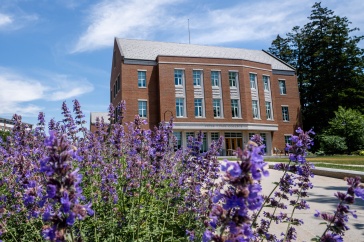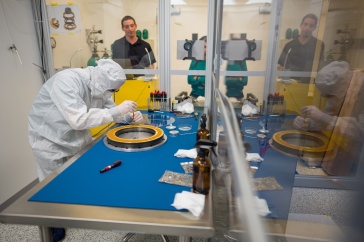
“The same courses are taught by the same faculty with the same expectations and the same personalized advising."
U.S. News & World Report has ranked the University of New Hampshire’s online MBA program among the top 100 programs nationally.
UNH was the only university in northern New England ranked in the top 100, coming in at 78. New England College placed at 155 and Southern New Hampshire University at 171.
According to Peter Lane, associate dean of faculty and graduate programs in the Peter T. Paul College of Business and Economics that runs the program, UNH’s online MBA stands out in two important ways.
“When we launched our online MBA program five years ago, we began with a commitment to make the online program as much like our evening on-campus part-time programs as possible,” he said. “The same courses are taught by the same faculty with the same expectations and the same personalized advising. The added benefit of the UNH online program is that students have the flexibility to join in-person classes at Durham or Manchester if they wish.
“We also realized that online is a fundamentally different type of teaching that needs new skills and perspectives to do well,” he said. “We partnered with UNH’s Academic Technologies team to develop a road map for how online MBA courses should be developed. We require all online MBA faculty members to go through training before teaching. We are pleased with progress of the program in terms of student feedback, retention, graduation rates and average time to completion. We are off to a great start and are trending upward.”
Dean Deborah Merrill-Sands commented that she is proud of these rankings, which are based on clear quality and performance criteria. U.S. News uses five criteria for its ranking of online MBA programs:
• Student engagement: Quality online MBA programs promote participation in courses, allowing students opportunities to readily interact with their instructors and classmates.
• Admissions selectivity: MBA student bodies entering with proven aptitudes, ambitions and accomplishments can handle the demands of rigorous coursework.
• Peer reputation: A survey of high-ranking academic officials at MBA programs helps account for intangible factors affecting program quality that are not captured by statistics.
• Faculty credentials and training: Strong online MBA programs employ instructors with academic credentials that mirror those of instructors for campus-based programs.
• Student services and technology: Outside of classes, strong support structures provide learning assistance, career guidance and financial aid resources commensurate with quality campus-based programs.
For more information visit Paul College’s online MBA program website.
For more information on U.S. News & World Report’s 2017, visit Best Online MBA Programs.

















































